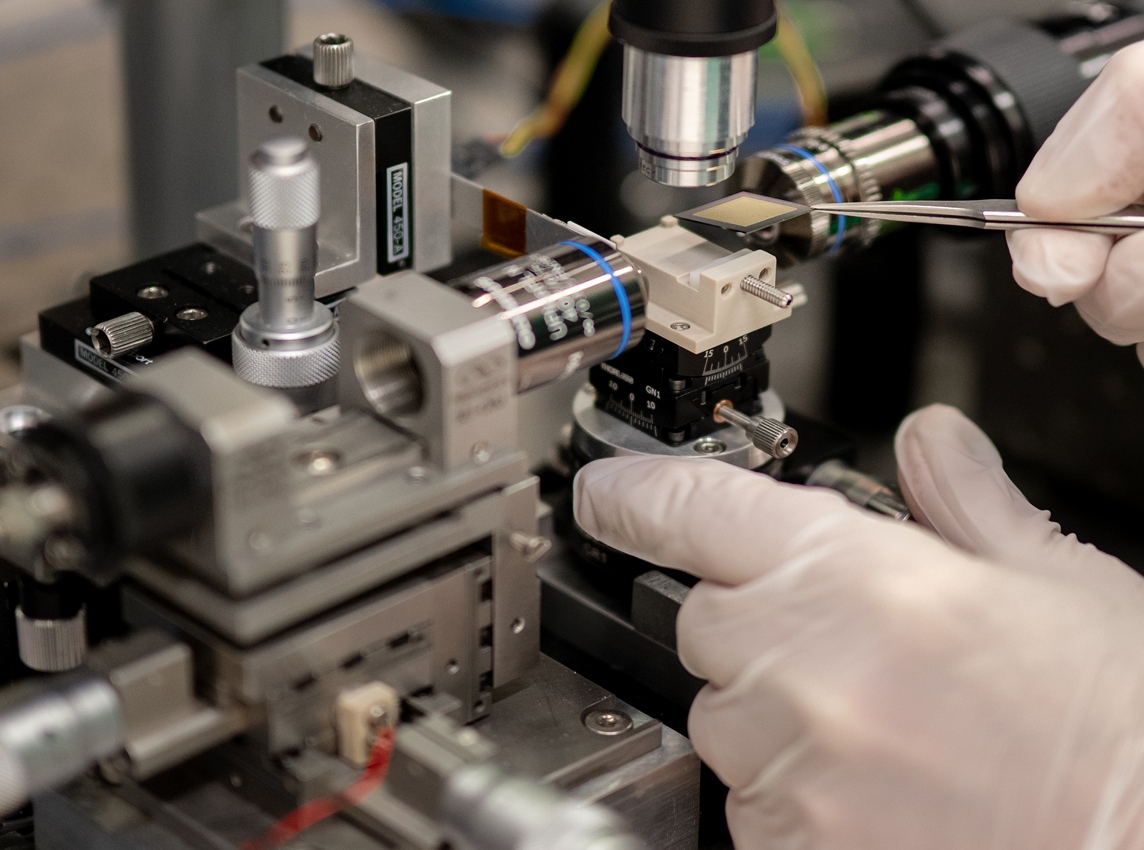
Quantum
Innovating in applied quantum sciences
For more than two decades, SRI has been developing precision quantum sensors to enable next-generation sensing and communications systems, from chip-scale clocks to cold-atom–based sensor systems, including developing the sophisticated integration technology required to move these sensors out of the lab.
Today, we’re rapidly expanding our quantum capabilities into several interconnected focus areas to solve problems in sensing and communications, as well as ISR (intelligence, surveillance, and reconnaissance) and PNT (position, navigation, and timing). We do this by leveraging our unique mix of deep expertise across both quantum and modern classical research areas to find new ways to apply quantum solutions to outstanding R&D problems.
We’re also proud to manage QED-C, positioning the institute at the forefront of the quantum community.
Innovating in
Real-world impact
-

Jonathan Felbinger: Helping prepare the world for a quantum future
Quantum could transform how we communicate, compute, and develop in innumerable fields.
-

Stefan Heck to join SRI’s board of directors
Heck will bring deep experience in AI, autonomous driving, sustainability, and other disruptive technologies.
-

SRI celebrates three “inflection points” in a nearly 80-year history of innovation
SRI received three new IEEE Milestone awards for the development of laser printing, the Alto computer, and Ethernet.
Focus areas
Recent publications
-
Non-Markovian Quantum Control via Model Maximum Likelihood Estimation and Reinforcement Learning
We propose a novel approach that incorporates the non-Markovian nature of the environment into a low-dimensional effective reservoir.
-
Stable, narrow-linewidth laser system with a broad frequency tunability and a fast switching time
We present a demonstration of a laser system that can rapidly switch a coupling laser as much as 8 nm in less than 50 μs.
-
Independent Rydberg atom sensing using a dual-ladder scheme
We show that using two independent schemes to prepare and readout the same Rydberg state can be used to perform independent measurements in general…